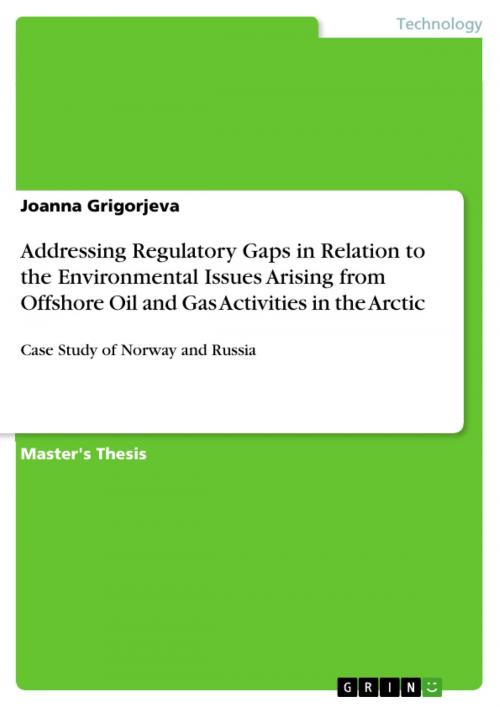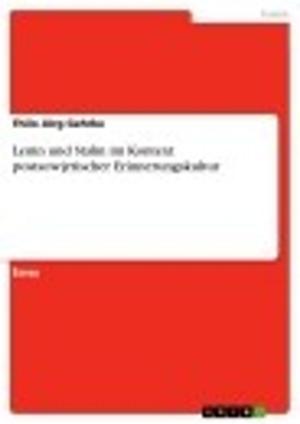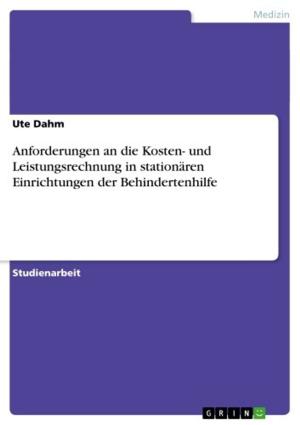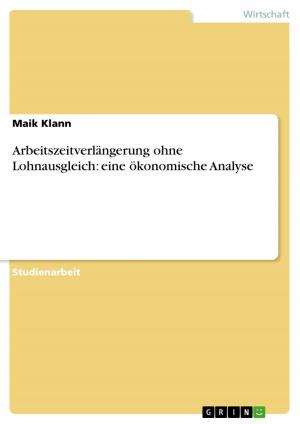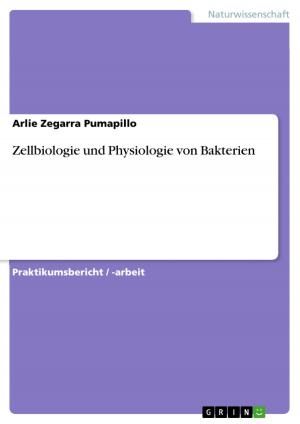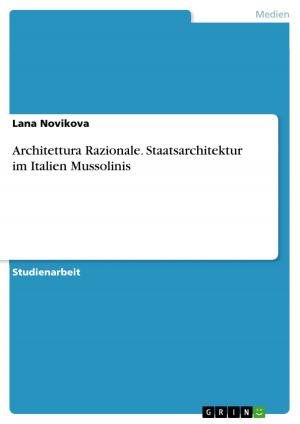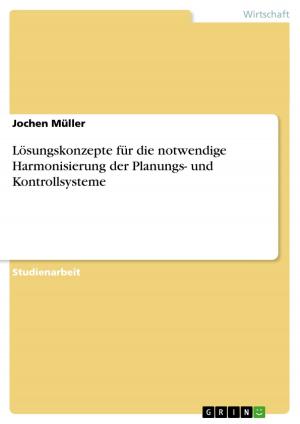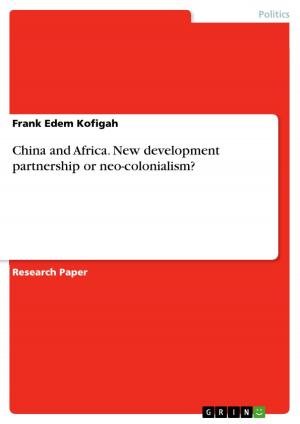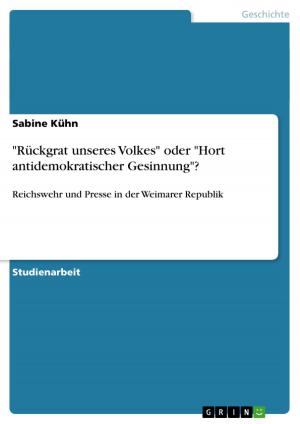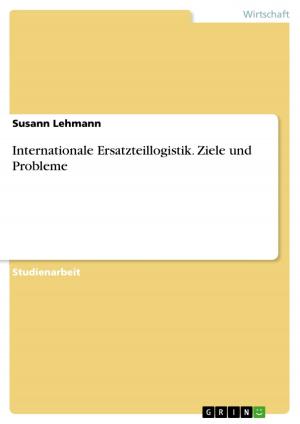Addressing Regulatory Gaps in Relation to the Environmental Issues Arising from Offshore Oil and Gas Activities in the Arctic
Case Study of Norway and Russia
Nonfiction, Science & Nature, Nature, Environment, Environmental Conservation & Protection| Author: | Joanna Grigorjeva | ISBN: | 9783668287464 |
| Publisher: | GRIN Verlag | Publication: | August 30, 2016 |
| Imprint: | GRIN Verlag | Language: | English |
| Author: | Joanna Grigorjeva |
| ISBN: | 9783668287464 |
| Publisher: | GRIN Verlag |
| Publication: | August 30, 2016 |
| Imprint: | GRIN Verlag |
| Language: | English |
Master's Thesis from the year 2014 in the subject Environmental Sciences, grade: 2:1, Robert Gordon University Aberdeen, course: Oil and Gas Law - Environmental Law, language: English, abstract: Melting of the Arctic ice, caused by global warming and energy security issues, has led Arctic states to prospect further North for new petroleum opportunities. Consequently, the already fragile Arctic marine environment has been further compromised. The Arctic coastal states, under the Ilulissat Declaration, agreed that UNCLOS will provide a legal basis for the regulatory framework in the Arctic, supplemented by Arctic Council soft-law. Consequently, the environmental issues in the Arctic, arising as a result of O&G activities, mainly have to be dealt under the discretion of the Arctic coastal states' regulations. By analysing current environmental regulation in the Arctic, the paper aims to discover if the framework can ensure that petroleum activities are carried out in an environmentally safe fashion. To make sure that the Arctic states can address the aforementioned issues, under national legislation, the paper will examine Russia's and Norway's petroleum regulations applicable to the Arctic. In the light of the performed analysis, the paper will propose to address the regulatory gaps created as a result of environmental issues arising from petroleum activities in the Arctic under the Arctic Framework Treaty. To address topical issues at the sub-regional level, an ecosystem-based management plan will be analysed, and suggesting its implementation on the Russian continental shelf.
Master's Thesis from the year 2014 in the subject Environmental Sciences, grade: 2:1, Robert Gordon University Aberdeen, course: Oil and Gas Law - Environmental Law, language: English, abstract: Melting of the Arctic ice, caused by global warming and energy security issues, has led Arctic states to prospect further North for new petroleum opportunities. Consequently, the already fragile Arctic marine environment has been further compromised. The Arctic coastal states, under the Ilulissat Declaration, agreed that UNCLOS will provide a legal basis for the regulatory framework in the Arctic, supplemented by Arctic Council soft-law. Consequently, the environmental issues in the Arctic, arising as a result of O&G activities, mainly have to be dealt under the discretion of the Arctic coastal states' regulations. By analysing current environmental regulation in the Arctic, the paper aims to discover if the framework can ensure that petroleum activities are carried out in an environmentally safe fashion. To make sure that the Arctic states can address the aforementioned issues, under national legislation, the paper will examine Russia's and Norway's petroleum regulations applicable to the Arctic. In the light of the performed analysis, the paper will propose to address the regulatory gaps created as a result of environmental issues arising from petroleum activities in the Arctic under the Arctic Framework Treaty. To address topical issues at the sub-regional level, an ecosystem-based management plan will be analysed, and suggesting its implementation on the Russian continental shelf.
